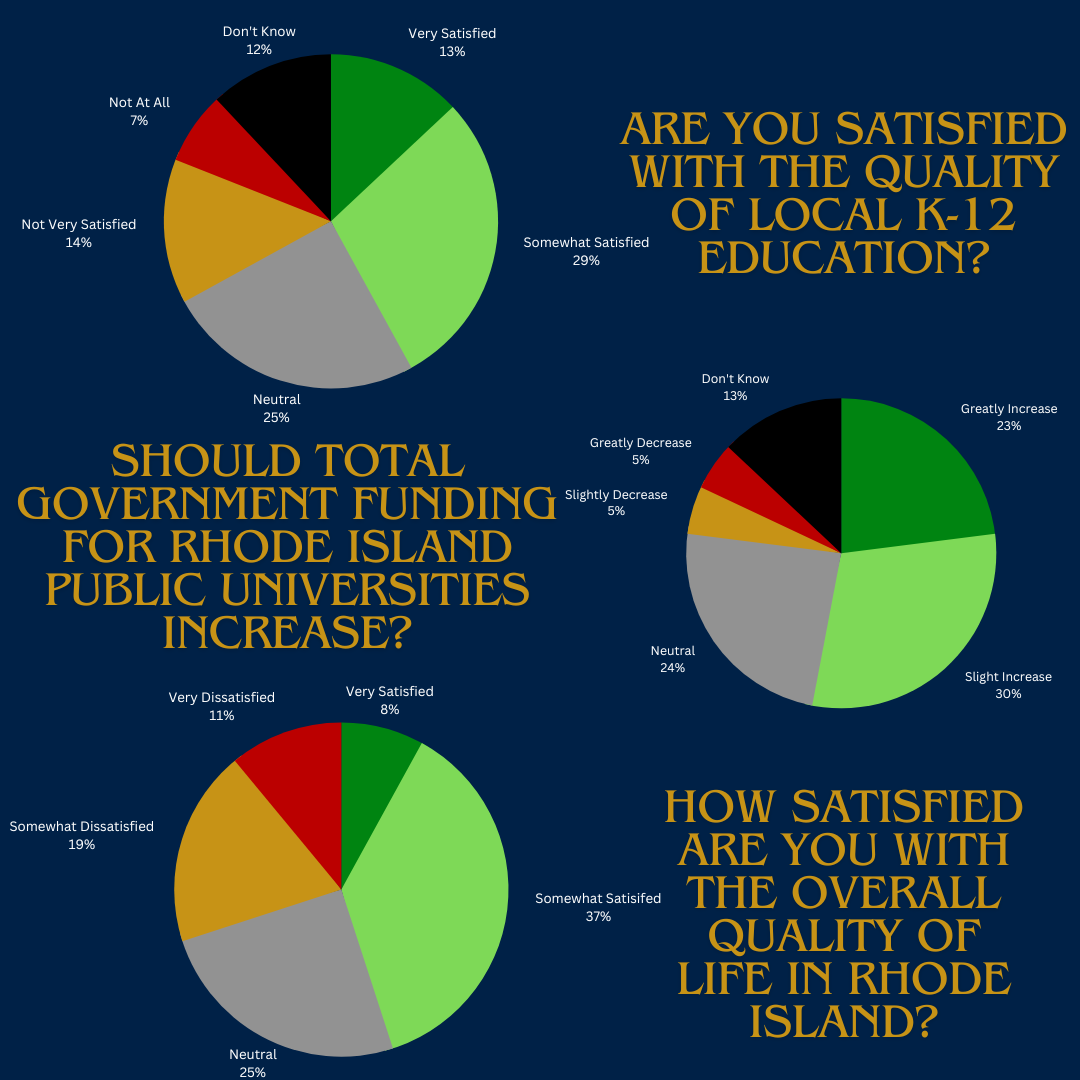University of Rhode Island faculty and students conducted a survey that records opinions of Rhode Island residents towards government and policy.
URI’s Harrington School of Communication and Media, the department of Political Science, the College of Arts and Sciences, and the Social Science Institute for Research, Education, and Policy collaborated to compile survey questions broken into four categories.
The survey circulated amongst 500 Rhode Island residents from Aug. 17 through Sept. 6, according to the results available on the URI website.
According to associate teaching professor for the Political Science Department, Emily Lynch, the survey was broken into modules. The four modules, written in the results, include public education, political issues in Rhode Island, politics and media usage and trust in government.
The purpose of the survey is to give an in-depth outline to policymakers, the media, and the public of the attitudes of Rhode Island residents towards current policies.
The collaborating departments decided to conduct a survey in the fall of 2022, according to SSIREP director and associate professor of sociology Julie Keller. The formation of the survey began in the summer of 2023.
According to Keller, research on former national opinion polls and the Rhode Island political climate helped to determine topics for the survey.
Research also showed that there was a lack of surveys across the state, according to Lynch.
“It’s important in a democracy for public officials to really understand how Rhode Islanders feel about these issues,” Lynch said.
Brown University, located in Providence, used to poll local elections annually. These initiatives stopped in 2016, according to an article from The Brown Daily Herald.
Further research, according to Lynch, showed a lack of statewide public polls. Lynch said URI had an opportunity to take this initiative.
The survey was distributed through YouGov, a data company that specializes in market research and opinion polling, according to the company’s website. Participants were chosen through a data analysis, through YouGov, according to the survey results.
Overall, the survey presented a general lack of trust in all levels of government. This, according to Keller, was an outstanding factor of the results.
“We have a wealth of information about how Rhode Islanders feel about the government,” Lynch said.
The survey also presented specific policies that the majority of residents agreed on, according to Lynch. These include the right to education written in our state constitution, free school lunches, and free pre-kindergarten across the state.
The first module on public education was researched by undergraduate research fellow David Rudolph, according to Lynch. Rudolph looked at education policy on the national and state level, and formed poll questions that would articulate public opinion through the survey results.
The poll presents URI students the opportunity to utilize its results for research and collaborative projects.
“Faculty working with the data in a classroom setting to fulfill certain course objectives and learning outcomes would be a really fun way for students to get some experience working with the data,” Keller said.
Keller envisions that community-based organizations and government agencies utilize this data for positive initiatives.
It is also important, according to Keller and Lynch, that policymakers are informed of this data.
“Since we don’t often get this viewpoint through public opinion polls in Rhode Island,” Keller said. “I think it’s important to see how [Rhode Island residents] are responding to some of these dire challenges.”
The poll is planned to be distributed annually. The topical module of education, according to Keller, will be changed to match the political climate of that year. According to Lynch, research showed that Rhode Island education policies were an avid topic of conversation with little research.
According to Keller, housing in Rhode Island was a secondary option to the topical module of this year’s survey. Keller said the other modules, including political issues in Rhode Island, politics and media usage, and trust in government, will remain a topic in subsequent polls.





